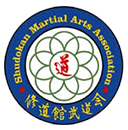The Importance of Asking Questions
By Lowry, DaveThis article first appeared in the “SMAA Journal” Volume 17, Issue 2
Do you think about the “why” of each move when you practice your art?
Have you ever actually asked your Sensei a question during practice?
You may be worried that it’s disrespectful to question your Sensei’s teachings, or perhaps you’re just be nervous to speak up during practice. However, asking questions about your art isn’t disrespectful, and any Sensei worth the title will be happy to explain the how and why of your art!
In this article, Sensei Dave Lowry will tell us in his own words why it’s important to ask questions when you study martial arts:
At seminars, while the group is working on some exercise I have given, I sometimes will go to a pair of practitioners, stop them, and ask “Why are you doing it that way?” The answer to this is critical. You must consider it very seriously if you care at all about taking your training into the realm where progress in any Do form needs to be directed.
“I’m doing it this way because my teacher told me to.”
If you are a beginner, if you have perhaps six or seven years in training, this is absolutely an acceptable answer. Students at this level do not need to know all or even many of the whys of their art. Indeed, “knowing” too much of these whys can actually be an impediment to training at their level. Knowing something intellectually and “knowing” it with your body, at an instinctive, somatic level, are two very different things in the budo. This is consistent with the thoughts of the neo-Confucian philosopher Wang Yang-Ming (In Japanese, he’s known as Oyomei), who said that “To know and not to act is not yet to know.” Few dojo inhabitants are more irritating than the beginner budoka who “understands” all the theories and can explain them in detail, but who can’t “do” squat.
If, however, you are a more senior student, at perhaps fourth or fifth dan, with maybe fifteen or twenty years of experience, then the reply that “I’m doing it this way because my teacher told me to” is, frankly, not an adequate one. Your answer should not be the same answer as that of the beginners.
Yes, I know. There are those who will sagely explain to you and me the very different Japanese way of teaching and learning. “You don’t ask questions in the dojo,” they say. You just watch and copy your teacher.
To some extent, this is true. But it is also true that Japanese students, at advanced levels, do ask questions. It is also true—and this is important— that non-Japanese students of the budo face different challenges in trying to master these arts. They do not share the culture of the Japanese budo. There is much that can be taken for granted in a Japanese dojo that cannot be assumed similarly in a Western dojo. Further, who is to say that the “Japanese” way of teaching is the best and only method of transmission? (Suffice it to say that when I insist there are too many “teachers” of budo out there who don’t have the qualifications to do so, I am by no means talking about just Westerners.)
I have spent too many evenings with too many older Japanese budo sensei, sitting over sake or beer, listening to them moan about all the questions they wished they’d asked their teachers when they had the opportunity. The fact is, whether it is transmitted through some magical osmosis or through the asking and answering of ongoing and detailed questions, the finer points of a budo must be passed on some way. If you have access to that magic osmosis, have at it. If not, you’d better start asking questions. And your teacher better be honest and sincere enough to answer them when it is appropriate to do so. More so, he must be brutally honest and sincere in admitting when he doesn’t know the answer—and he should be eager to work to find it out by asking his own teachers or other senior practitioners.
Join Like-Minded Artists at an International Martial Arts Association
If you’re looking for an international martial arts association dedicated to preserving the authentic Japanese arts, you’re in the right place!
SMAA offers certification in authentic aikido, iaido, judo, jujutsu, and karate-do. If you’re interested in becoming a member, call (734) 720-0330 or submit a contact form here. We would love to add you to our ranks!

